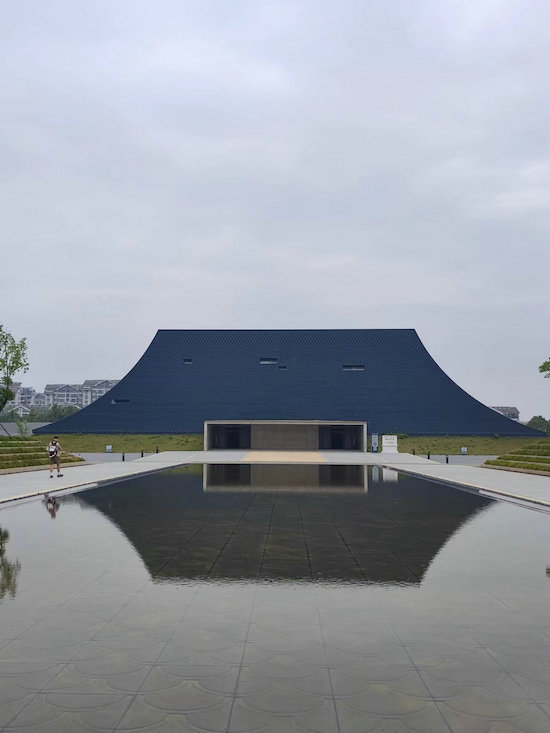Meet Yangzhou, where the Grand Canal begins


The Mausoleum Park of Sui Emperor Yang Guang. [Photo by Yang Xiaoyu/chinadaily.com.cn]
For many Chinese, ancient poetry verses are on the tip of the tongue whenever the name of Yangzhou is uttered. Enchanted, countless poets such as Li Bai, Du Mu, and Su Dongpo penned poems, weaving their admiration for the city in the vibrant tapestry of Chinese poetry.
The Grand Canal, an umbilical cord connecting China's North and South, played an indispensable role in transporting literati to Yangzhou, fanning its fame through popular verses, which in turn, speak volumes about Yangzhou's prosperity and popularity in ancient China, particularly during Tang and Song (618-1279) dynasties.
Quietly sitting north of the Yangtze River in East China's Jiangsu province, Yangzhou is the starting point of Hangou Canal, also known as the ancient section of the Grand Canal, the first canal in Chinese history. It was dug by King Fuchai of the Wu State during the Spring and Autumn Period (770-476 BC), as a means to ship supplies north in case his forces should engage the northern states.
Historians believe that the Hangou Canal gave birth to Yangzhou.







